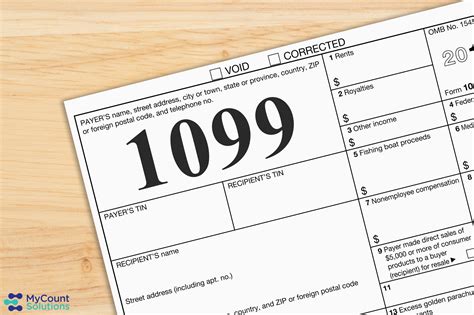The 1099 form is a crucial document for independent contractors, as it serves as a record of their income earned from various clients and sources. As a freelancer or independent contractor, understanding the ins and outs of the 1099 form is essential for navigating the complexities of self-employment taxation. In this article, we will delve into the world of 1099 forms, exploring their purpose, types, and implications for independent contractors.
What is a 1099 Form?

A 1099 form is a type of information return that reports income earned by independent contractors, freelancers, and other non-employee workers. The form is typically issued by clients or payers who have paid the contractor $600 or more in a calendar year. The 1099 form is used to report various types of income, including freelance work, consulting fees, and rental income. There are several types of 1099 forms, each serving a specific purpose, such as the 1099-MISC, 1099-INT, and 1099-DIV.
Types of 1099 Forms
The most common type of 1099 form is the 1099-MISC, which reports miscellaneous income earned by independent contractors. This form is used to report income from freelance work, consulting fees, and other types of non-employee compensation. Other types of 1099 forms include the 1099-INT, which reports interest income, and the 1099-DIV, which reports dividend income. Understanding the different types of 1099 forms is essential for independent contractors, as each form has its own set of rules and requirements.
| 1099 Form Type | Purpose |
|---|---|
| 1099-MISC | Reports miscellaneous income earned by independent contractors |
| 1099-INT | Reports interest income |
| 1099-DIV | Reports dividend income |

Key Points
- 1099 forms are used to report income earned by independent contractors
- There are several types of 1099 forms, each serving a specific purpose
- Independent contractors must report income earned from 1099 forms on their tax return
- The 1099-MISC form is the most common type of 1099 form
- Understanding the different types of 1099 forms is essential for independent contractors
Implications for Independent Contractors

As an independent contractor, receiving a 1099 form can have significant implications for your taxes. The income reported on the 1099 form must be reported on your tax return, and you may be subject to self-employment tax on your net earnings from self-employment. It’s essential to keep accurate records of your income and expenses, as you may be able to deduct business expenses on your tax return. Additionally, independent contractors may need to make estimated tax payments throughout the year to avoid penalties and interest.
Self-Employment Tax
Self-employment tax is a type of tax that independent contractors must pay on their net earnings from self-employment. The self-employment tax rate is 15.3% of net earnings from self-employment, which includes income reported on 1099 forms. Independent contractors can deduct half of their self-employment tax as a business expense on their tax return. Understanding self-employment tax is crucial for independent contractors, as it can have a significant impact on their tax liability.
Conclusion
In conclusion, 1099 forms are a critical component of the taxation process for independent contractors. Understanding the different types of 1099 forms, as well as the implications for independent contractors, is essential for navigating the complexities of self-employment taxation. By keeping accurate records and making estimated tax payments, independent contractors can ensure that they are in compliance with tax laws and regulations. As the gig economy continues to grow, the importance of 1099 forms will only continue to increase, making it essential for independent contractors to stay informed and up-to-date on the latest developments.
What is a 1099 form?
+A 1099 form is a type of information return that reports income earned by independent contractors, freelancers, and other non-employee workers.
Who is required to file a 1099 form?
+Clients or payers who have paid independent contractors $600 or more in a calendar year are required to file a 1099 form.
What types of income are reported on a 1099 form?
+1099 forms report various types of income, including freelance work, consulting fees, rental income, interest income, and dividend income.
How do I report income from a 1099 form on my tax return?
+Income from a 1099 form must be reported on your tax return, and you may be subject to self-employment tax on your net earnings from self-employment.
Can I deduct business expenses on my tax return if I receive a 1099 form?
+Yes, independent contractors may be able to deduct business expenses on their tax return, which can help reduce their tax liability.
Meta Description: Learn about 1099 forms and their implications for independent contractors, including self-employment tax and business expense deductions. Understand the different types of 1099 forms and how to report income on your tax return.



